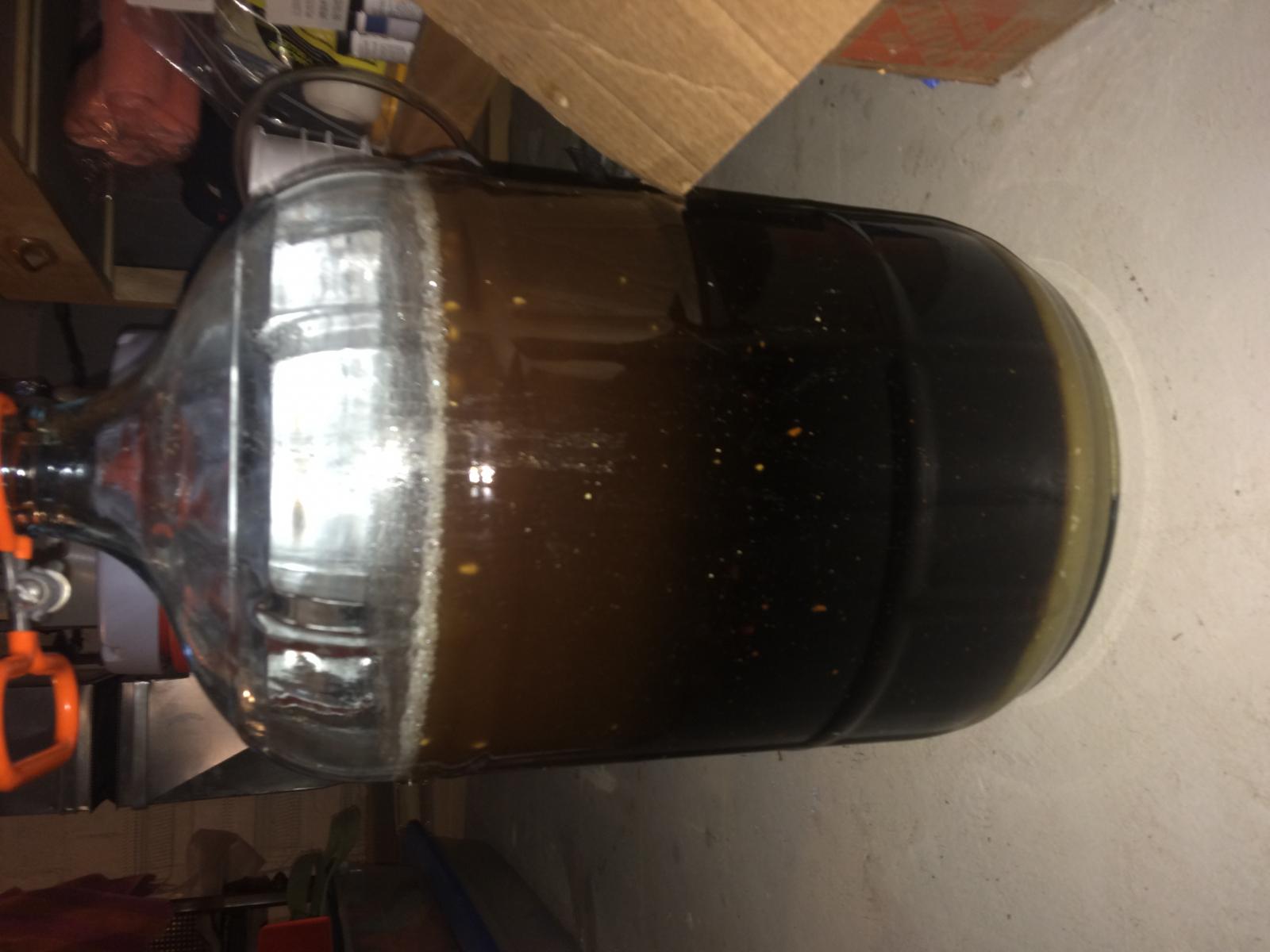Argentum
Active Member
I plan to brew a red rye IPA. I've posted versions of this a couple of times, in the General Discussion forum, 'cause I'm a Dumb, but I realize it's more appropriately posted here and hope to get a little more feedback after incorporating some suggestions and tweaking the recipe. I'd appreciate any feedback on any part of it, including the grain bill, the hops, the yeast, and the fermentation temp. Thanks!
Batch Size (Gallons): 5
Grains:
10 pounds 2-row
2 pounds rye
10 oz Carared
6 oz Crystal 90
8 oz Carapils
2 oz roasted rye
8 oz rice hulls
8 oz flaked rye
Boiling Time: 60 minutes
Hops:
1 oz Columbus - FWH
.5 oz centennial - 15
.5 oz Amarillo - 15
.5 oz centennial - 10
.5 oz Amarillo - 10
.5 oz Simcoe - 5
.5 oz Willamette- 5
.5 oz Willamette - flameout
.5 oz Simcoe - flameout
1 oz Willamette - dry hop
1 oz citra - dry hop
Yeast: US-05? Or maybe WLP001. Maybe even Wyeast 1450, which is what Denny Conn uses for his rye IPA. Would really like suggestions.
Primary (Days/Temp): 14 days at 64
Secondary (Days/Temp): 7 at 64, then crash at 36 for 3 days
Expected Original Gravity: 1.071 (my app attributes points to flaked rye but I subtracted them)
Expected Final Gravity: 1.014
IBU: 51
In case anyone is interested in why the grain bill looks as it does: I considered a maltier addition, like melanoidin or Munich, but looking at what goes into beers like dogfish head, evolution #3, evolution #6, and other typical IPAs, they don't use it. Some do but I like ones that don't seem to.
As for the hops, again, these hops (with the exception of Willamette) appear consistently in IPAs I really enjoy. I thought that a FWH with no 60 minute addition would yield a smoother bitterness, and at 51 IBUs it's in IPA range (I suspect the IBUs will be higher as my recipe app does not calculate and IBUs based on hops added at flameout. As it is it seems like I'm adding a lot of hops, but should I add even more? Another ounce at flameout? While cooking the wort? Another post discusses this for more robust hop flavor.
Regarding the fermentation temp, I've seen recipes that call for fermentation in the upper 60s but also some that ferment at 62-64, and I've had some bad batches that I've attributed to high pitching and fermentation temps.
At any rate I appreciate any feedback!
Batch Size (Gallons): 5
Grains:
10 pounds 2-row
2 pounds rye
10 oz Carared
6 oz Crystal 90
8 oz Carapils
2 oz roasted rye
8 oz rice hulls
8 oz flaked rye
Boiling Time: 60 minutes
Hops:
1 oz Columbus - FWH
.5 oz centennial - 15
.5 oz Amarillo - 15
.5 oz centennial - 10
.5 oz Amarillo - 10
.5 oz Simcoe - 5
.5 oz Willamette- 5
.5 oz Willamette - flameout
.5 oz Simcoe - flameout
1 oz Willamette - dry hop
1 oz citra - dry hop
Yeast: US-05? Or maybe WLP001. Maybe even Wyeast 1450, which is what Denny Conn uses for his rye IPA. Would really like suggestions.
Primary (Days/Temp): 14 days at 64
Secondary (Days/Temp): 7 at 64, then crash at 36 for 3 days
Expected Original Gravity: 1.071 (my app attributes points to flaked rye but I subtracted them)
Expected Final Gravity: 1.014
IBU: 51
In case anyone is interested in why the grain bill looks as it does: I considered a maltier addition, like melanoidin or Munich, but looking at what goes into beers like dogfish head, evolution #3, evolution #6, and other typical IPAs, they don't use it. Some do but I like ones that don't seem to.
As for the hops, again, these hops (with the exception of Willamette) appear consistently in IPAs I really enjoy. I thought that a FWH with no 60 minute addition would yield a smoother bitterness, and at 51 IBUs it's in IPA range (I suspect the IBUs will be higher as my recipe app does not calculate and IBUs based on hops added at flameout. As it is it seems like I'm adding a lot of hops, but should I add even more? Another ounce at flameout? While cooking the wort? Another post discusses this for more robust hop flavor.
Regarding the fermentation temp, I've seen recipes that call for fermentation in the upper 60s but also some that ferment at 62-64, and I've had some bad batches that I've attributed to high pitching and fermentation temps.
At any rate I appreciate any feedback!



